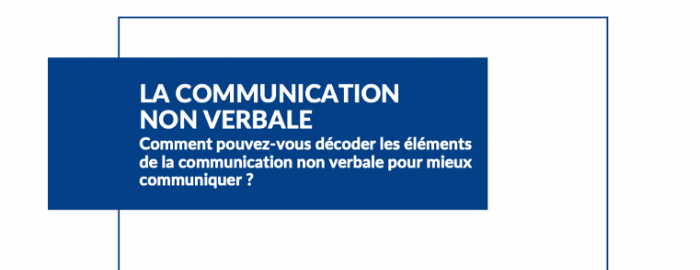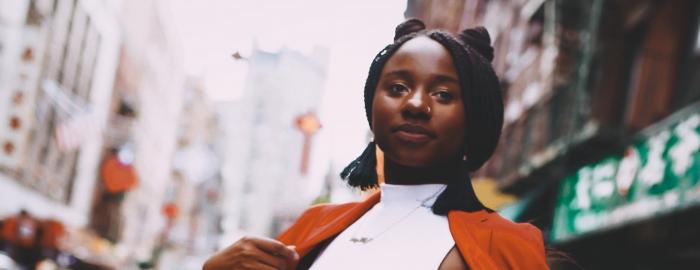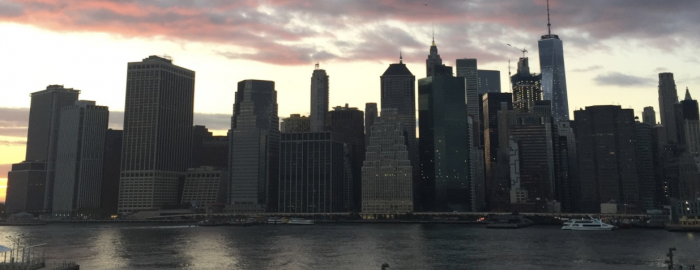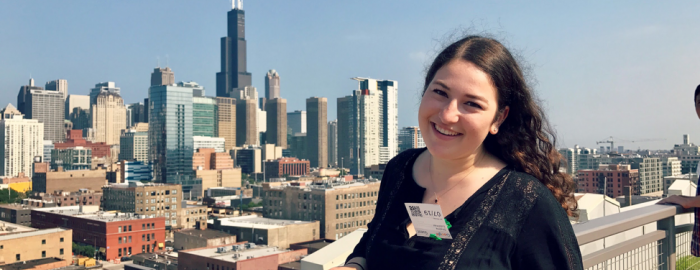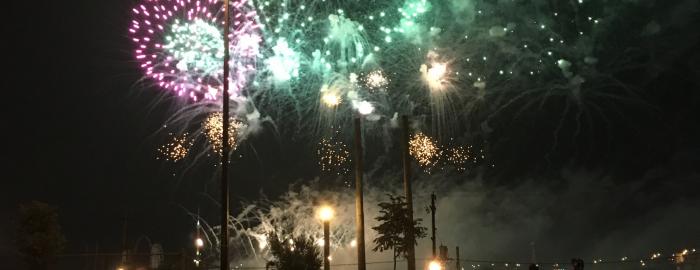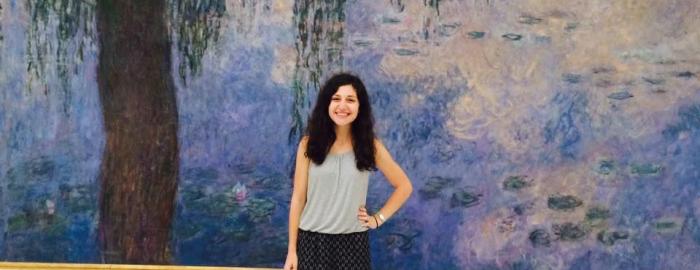By Erin Butrico
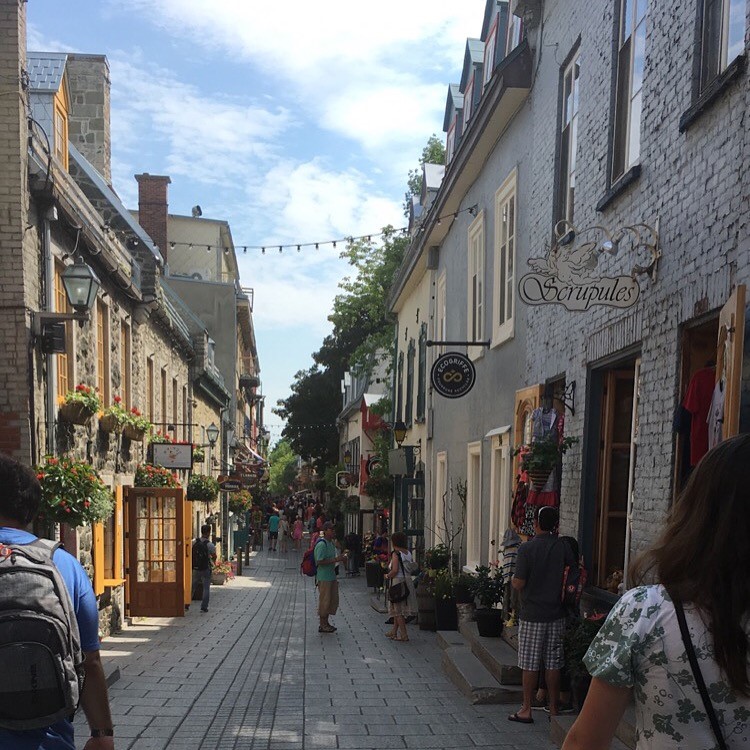
Why did you decide to do Duke in Montréal?
Duke in Montréal was the perfect fit for my summer. For starters, I decided a bit late in the game that I wanted to major in French. I thought that I would have to overload to get all of my French courses in, but this program helped to fix that problem.
Secondly, I loved the idea of an immersive course. I knew that this course was not just a sit-in-the-classroom-and-take-notes kind of thing, but an interactive, hands-on way of learning. As I was headed to France in the fall and was comfortable with my written comprehension (but extremely uncomfortable with oral comprehension and speaking the language itself), I knew that this interactive program would give me confidence to survive in France.
Thirdly, when I showed interest in this program, Madame Reisinger responded with the utmost enthusiasm. I’ll never forget going into her office to talk a bit about the program and leaving so genuinely excited about the course, the different site visits, and the itinerary in general. That was contagious and ultimately lead me to chose this program as my summer plan.
Compare how your French skills changed after doing this program.
My French skills changed enormously after this program. Coming in, I could read and write French perfectly. If you gave me a passage and asked me to analyze it, I could do it no problem. If you asked me to write a 10-page paper, I would also be fine. But listening to the radio and understanding? Having a conversation with store clerks in French? Impossible. This program changed that.
By having class for a few hours a day and then having the opportunity to go out in Montréal and do projects on the culture there, we were forced to engage with French-speakers. We were thrown into the heat of the French language, forced to interview Montréal citizens, engage with government officials during our site visits, and have meals with Madame in French.
Little by little, the spoken language became less and less familiar, and I really became comfortable with it. I felt brave to try speaking myself, but was assured by the fact that I could use English as a fall-back if I didn’t understand the person I was speaking to (thanks to the high rate of bilingualism). This program helped change my confidence and made me more open to the language. I couldn’t be more grateful for that.
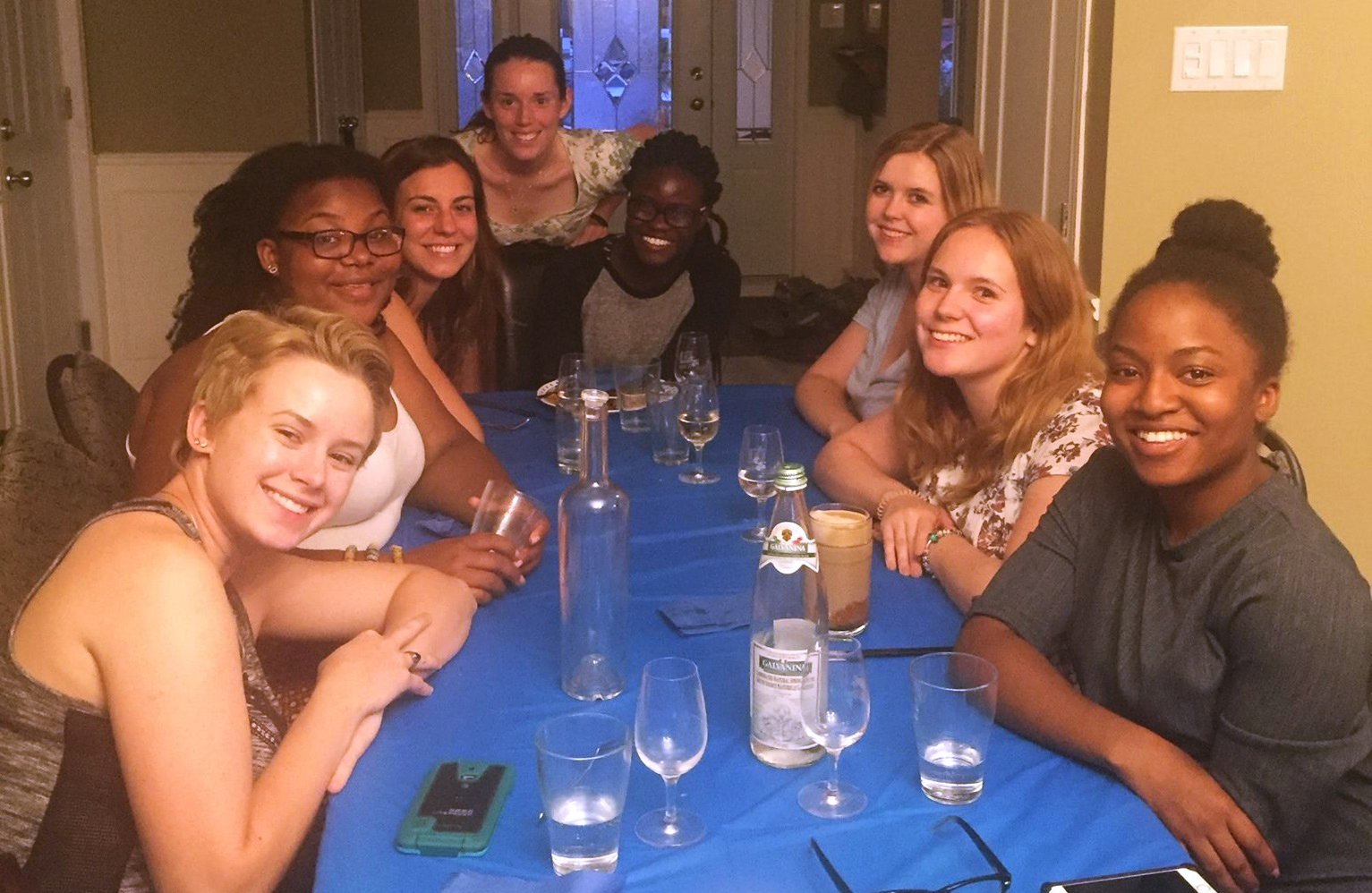
Describe how your ideas and perceptions of Montréal and Quebec changed as a result of doing this program.
I didn’t have any real ideas of Montréal and Québec coming in (besides that they were French-speaking!), but I came out with a deep appreciation for them both. These two cities are filled with culture—I learned this through my study of Little Italy and the Juste pour Rires Festival for my two projects. I learned that these cities have millions of layers. They love to dance; they love to create. They love good food and encouraging people to learn French. They are proud of their version of French and have laws to uphold its usage. What a fascinating place.
Thinking back to what you expected this program to be like, would you say anything surprised you or turned out differently?
I think I was surprised with how much freedom I had in Montréal. I knew that class wouldn’t be all day and that a lot of learning would be done outside the classroom, but I don’t think I realized how much I would be out and about in the city to learn. And I loved that.
I loved working with volunteers in the Juste pour Rires program to really feel immersed in the French language. I loved taking videos of the different festivals and interviewing individuals on their work, Québec culture, and their take on summer in Québec, in general. I loved being able to roam around and not forcefully learn something, but easily absorb culture, language, and understanding as I walked and explored.
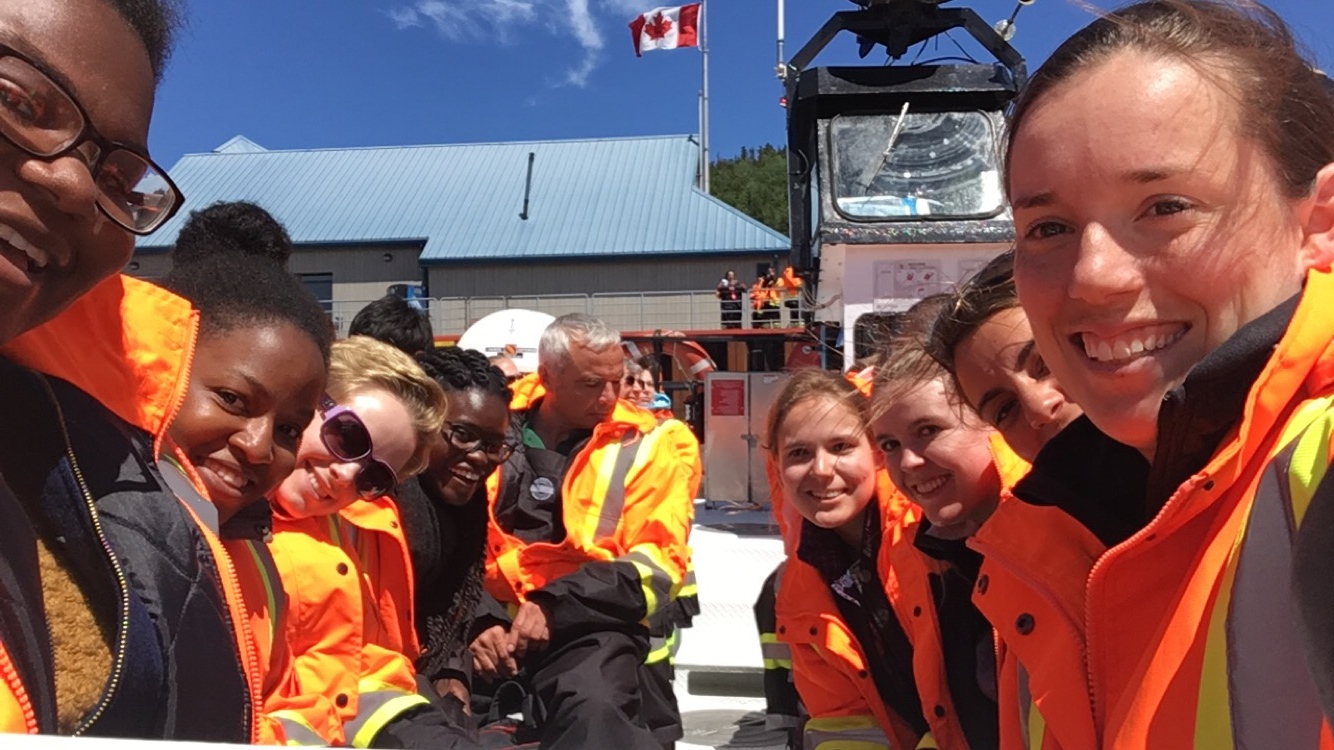
How did this program prepare you for Duke in France? Tell us about your greatest takeaway from this program.
For me, the greatest things I gained from this program were (1) comfort with the French language, (2) a sense of spontaneity, and (3) confidence with ambiguity. This program really exposed me to French: Not only in the classroom, but in the streets with our discussions and interactions with Madame.
This program really taught me how to be spontaneous, go with the flow, and be open for any endeavor we were about to undertake (whether it be visiting the American consultate, drumming at the African drum festival, volunteering with Quebec youth at the Juste pour Rires festival, by ourselves). This program taught me that it’s okay to not understand—it’s okay to be vulnerable and not have a clue what is going on in a different country with a different language. This program taught me that persistence in trying the language, being open to critique, and slowly absorbing what you learn into everyday usage will make you a better speaker of the language. I carried all of these traits over into France, and they have been extremely helpful.
What kind of student would succeed on this program?
A spontaneous, open-minded student who is curious about marketing, is enthusiastic about the French language, and is unafraid to make conversations with strangers.
What advice do you have for other students considering this program?
Take advantage of everything! Go to all the festivals, try the poutine, talk to as many Québec youth as you can. Speak in French at every opportunity—don’t feel nervous trying. You’ll only get better by practicing. See every museum; spend a bit of time in each festival. Profitez bien—Québec rocks.
Erin Butrico
Psychology, French, Class of 2018
Duke in Montréal, Summer 2016
Duke in France/EDUCO, Fall 2016


